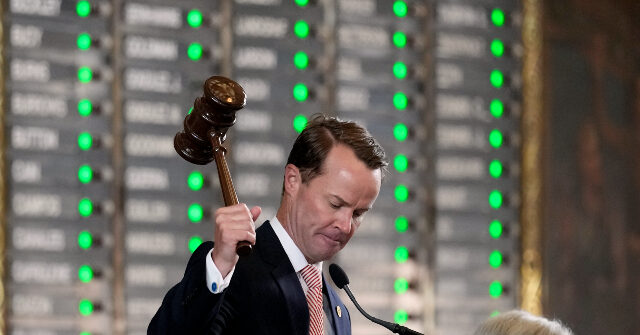Texas Speaker of the House Dade Phelan recently announced his decision to withdraw his candidacy for the position of Speaker for the upcoming legislative session, a move that could significantly affect the passage of important conservative legislation in Texas. Phelan emphasized that this decision was made after extensive reflection and discussions with colleagues. In his written statement, he expressed his commitment to the principles of honor, integrity, and the right for members to represent their districts. The backdrop to this withdrawal includes Phelan facing considerable scrutiny from the Republican Party of Texas, which has previously censured him and marked him as a target for pushback due to controversies surrounding his leadership.
This withdrawal sets the stage for a competitive race between notable Republican figures, particularly State Representative Duston Burrown of Lubbock and David Cook from Mansfield. The upcoming legislative session will be defined by a Republican majority in the Texas House, consisting of 88 Republicans and 62 Democrats. Cook’s team is reportedly strategizing to secure 76 Republican votes, aiming to achieve the necessary support to obtain the speakership without relying on Democratic votes. This tactic reflects the contentious nature of intra-party politics as Cook seeks to consolidate support among the majority, with Phelan’s exit likely serving as a catalyst for these proceedings.
The rules set forth by the House Republican Caucus stipulate that a single candidate must obtain at least 60% of the votes at an upcoming caucus meeting to unify Republican support. According to reports, David Cook is close to reaching this threshold but still has a few votes to secure. This tension showcases the division and competition within the Republican ranks, indicative of a broader struggle for influence and control within the legislative body post-Phelan.
Should no Republican candidate secure the requisite majority, the dynamics shift in favor of the Democrats, who would only need to align with a mere 14 members of the Republican side to sway the outcome and determine the next Speaker. Phelan’s decision to step back is seen as a way to foster a more unified approach among Republicans, avoiding potential fragmentation that would otherwise allow Democratic influence to rise in the Speaker selection process.
Despite stepping down from the Speaker race, Phelan remains committed to his legislative role, signaling his willingness to collaborate with his colleagues in order to nominate a unifying candidate. His statement reinforces the importance he places on maintaining integrity and conservative values within the Texas House during what he terms the 89th Legislature. This commitment to unity may serve as a strategic move to prevent any further erosion of conservative control and to facilitate legislative success even amidst internal challenges.
In light of Phelan’s withdrawal, the implications for Texas politics are significant; the shift in leadership dynamics could pave the way for new legislative priorities and strategies that reflect the conservative agenda highlighted by Cook and Burrown. As the race unfolds, the Republican Party’s ability to coalesce around a single candidate will be crucial in determining the future legislative landscape in Texas, with potential repercussions that extend beyond just the House but also affect the broader political climate in the state.

